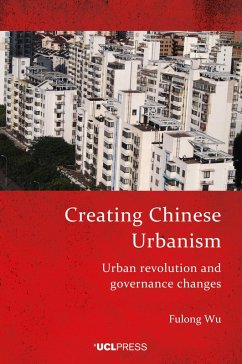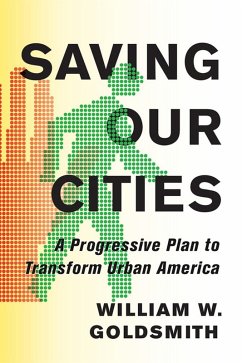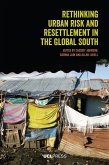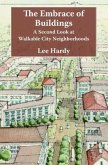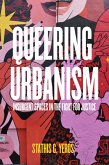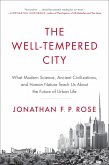Creating Chinese Urbanism describes the landscape of urbanisation in China, revealing the profound impacts of marketisation on Chinese society and the consequential governance changes at the grassroots level.
During the imperial and socialist periods, state and society were embedded. However, as China has been becoming urban, the territorial foundation of 'earth-bound' society has been dismantled. This metaphorically started an urban revolution, which has transformed the social order derived from the 'state in society'. The state has thus become more visible in Chinese urban life.
Besides witnessing the breaking down of socially integrated neighbourhoods, Fulong Wu explains the urban roots of a rising state in China. Instead of governing through autonomous stakeholders, state-sponsored strategic intentions remain. In the urban realm, the desire for greater residential privacy does not foster collectivism. State-led rebuilding of residential communities has sped up the demise of traditionalism and given birth to a new China with greater urbanism and state-centred governance.
Taking the vantage point of concrete residential neighbourhoods, Creating Chinese Urbanism offers a cutting-edge analysis of how China is becoming urban and grounds the changing state governance in the process of urbanization. Its original and material interpretation of the changing role of the state in China makes it suitable reading for researchers and students in the fields of urban studies, geography, planning and the built environment.
Praise for Creating Chinese Urbanism
'Concisely and clearly written. A great read for scholars and urban planners who are interested in the impacts of marketization on Chinese society and the consequential changes at the neighborhood-level. It is an approachable read for students and scholars who want to conduct theoretical research in the field of urban studies. Overall, this is an enticing and enlightening book that tells a story of neighborhood social changes in China.'
Journal of Urban Affairs
'Creating Chinese Urbanism is a genuinely compelling book. On the one hand, it embarks on a path of retheorising Chinese urbanisation as a process during which social orders and modes of associations are fundamentally altered, an inquiry that has hitherto been under-scrutinised in urban China studies. On the other hand, the empirical materials presented in the book are extremely rich, drawing upon the author's three decades of research.'
Urban Studies Journal
'For its careful documentation of urban transformation this book has made a quite monumental contribution to urban studies and should find its place on he shelves of urban scholars no matter their regional emphasis.'
Eurasian Geography and Economics
'A significant and ground-breaking contribution on an important topic, this book draws on an impressive reservoir of both English- and Chinese-language studies'
The China Quarterly
'This book is arguably one of the most comprehensive and illuminating works on Chinese urbanism. With its accessible writing style, vividly documented case studies and cutting-edge analysis, anyone who wants to learn more about the historical geography of urban China would benefit greatly from reading it.'
International Journal of Urban and Regional Research
During the imperial and socialist periods, state and society were embedded. However, as China has been becoming urban, the territorial foundation of 'earth-bound' society has been dismantled. This metaphorically started an urban revolution, which has transformed the social order derived from the 'state in society'. The state has thus become more visible in Chinese urban life.
Besides witnessing the breaking down of socially integrated neighbourhoods, Fulong Wu explains the urban roots of a rising state in China. Instead of governing through autonomous stakeholders, state-sponsored strategic intentions remain. In the urban realm, the desire for greater residential privacy does not foster collectivism. State-led rebuilding of residential communities has sped up the demise of traditionalism and given birth to a new China with greater urbanism and state-centred governance.
Taking the vantage point of concrete residential neighbourhoods, Creating Chinese Urbanism offers a cutting-edge analysis of how China is becoming urban and grounds the changing state governance in the process of urbanization. Its original and material interpretation of the changing role of the state in China makes it suitable reading for researchers and students in the fields of urban studies, geography, planning and the built environment.
Praise for Creating Chinese Urbanism
'Concisely and clearly written. A great read for scholars and urban planners who are interested in the impacts of marketization on Chinese society and the consequential changes at the neighborhood-level. It is an approachable read for students and scholars who want to conduct theoretical research in the field of urban studies. Overall, this is an enticing and enlightening book that tells a story of neighborhood social changes in China.'
Journal of Urban Affairs
'Creating Chinese Urbanism is a genuinely compelling book. On the one hand, it embarks on a path of retheorising Chinese urbanisation as a process during which social orders and modes of associations are fundamentally altered, an inquiry that has hitherto been under-scrutinised in urban China studies. On the other hand, the empirical materials presented in the book are extremely rich, drawing upon the author's three decades of research.'
Urban Studies Journal
'For its careful documentation of urban transformation this book has made a quite monumental contribution to urban studies and should find its place on he shelves of urban scholars no matter their regional emphasis.'
Eurasian Geography and Economics
'A significant and ground-breaking contribution on an important topic, this book draws on an impressive reservoir of both English- and Chinese-language studies'
The China Quarterly
'This book is arguably one of the most comprehensive and illuminating works on Chinese urbanism. With its accessible writing style, vividly documented case studies and cutting-edge analysis, anyone who wants to learn more about the historical geography of urban China would benefit greatly from reading it.'
International Journal of Urban and Regional Research
Dieser Download kann aus rechtlichen Gründen nur mit Rechnungsadresse in A, D ausgeliefert werden.

